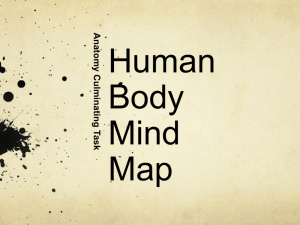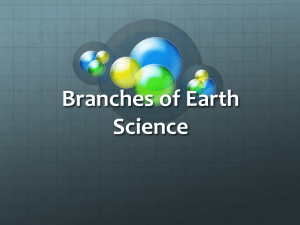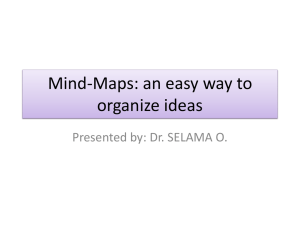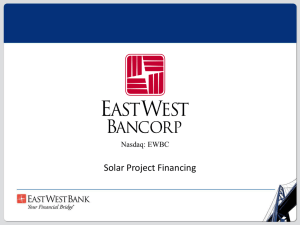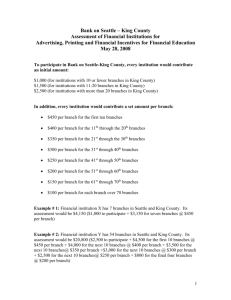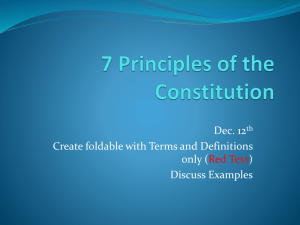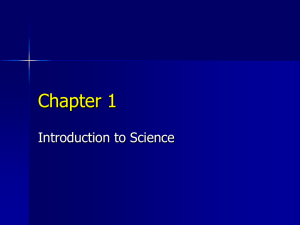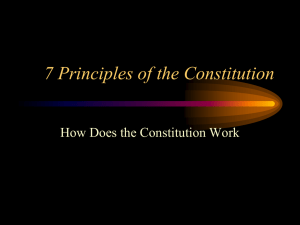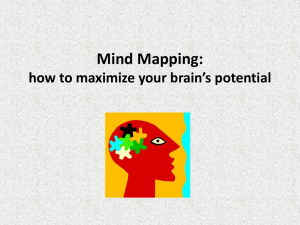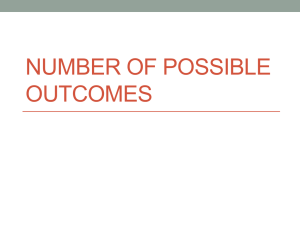Branches of Government
advertisement
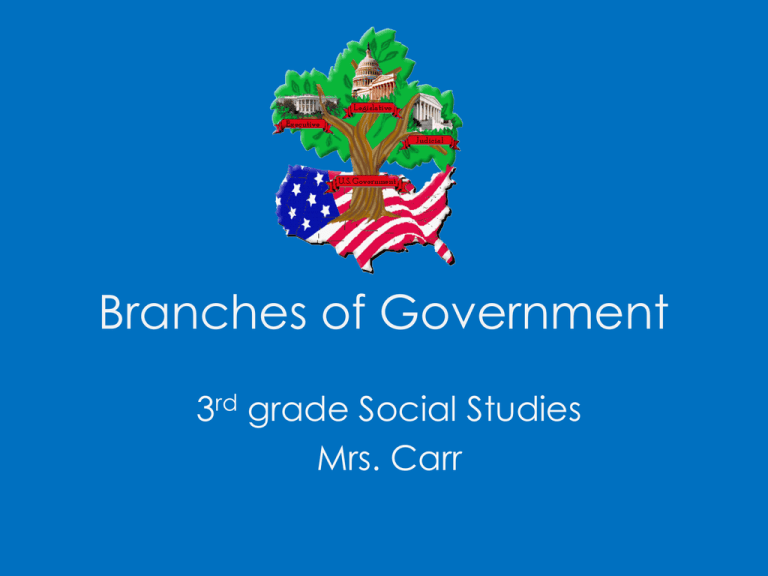
Branches of Government 3rd grade Social Studies Mrs. Carr Introduction Every day when you turn on the news, you will probably hear the word government, but what is the government? During this investigation, you will learn about the 3 branches of government and the jobs of each branch. Essential Question: What are the three branches of government and what are their responsibilities? Task You and your partner will work together to investigate the three branches of government. Using the information provided, you will: identify the three branches of government and identify their major responsibilities. You and your partner will create a concept map with the necessary information. After researching and creating your concept map, you and your partner will discuss your findings. As a team, you will decide which branch you would like to work in if your worked for the government. Write a letter to your teacher and discuss why you would like to work in that branch. Finally, make a list of questions you still have. Learning about the government can be very hard. After reading through the various sources, you may still have some questions or you may have come across some things you did not understand. Make a list of AT LEAST 3 questions you may still have. You may have more than three. Process 1. Work with a partner 2. Create a tree map to organize the information you will find. Your tree map will need 3 branches (one branch for each branch of the government). Use the drawing tools in a word document to create your tree map. 3. Visit the website below to gather information about the branches of government and record information on your tree map. http://bensguide.gpo.gov/3-5/government/branches.html Process Page 2 4. View the online learning module: The Duties of the Three Branches of Government. After viewing, discuss your findings and add to your tree map. http://www.wisc-online.com/objects/ViewObject.aspx?ID=SOC5904 5. Visit the Congress for kids website. View each of the following links to investigate each branch of the government. Each link her a great deal of information, so be sure to click on all relevant links. As you investigate, take notes on your tree map. http://congressforkids.net/Legislativebranch_index.htm http://congressforkids.net/Executivebranch_index.htm http://congressforkids.net/Judicialbranch_index.htm Process Page 3 6. Use YouTube to view the School House Rocks video: Three Ring Government. http://www.youtube.com/watch?v=PS2wD6ahGZQ 7. Visit the following website: http://library.thinkquest.org/J0110221/Legislative.html Click on each branch of government. Investigate and add any new information to your tree map. Process Page 4 Now your research is complete 8. Print and save your tree map. 9. Create a concept map. Your map must: identify the three branches of government, describe the main responsibilities of each branch, give any other important information about each branch, include at least one picture with each branch to help make a visual representation to the branch. **Save your concept map to the class Wiki. 10. Write a letter to your teacher detailing which branch of the government you would like to work in and why. **Save your letter on the class Wiki. 10. Make a list of questions your may still have about the branches of government (include AT LEAST 3 questions). **Save your letter on the class Wiki. Evaluation 10 points 15 point 25 points Tree Map Included one branch of government and/or did not provide adequate information on each branch. Included two branches of government and/or had some information on each branch. Included all three branched of government and provided adequate information on each branch. Concept Map Did not include two of the following: branches of government, major responsibilities of each branch, a picture with each branch. Did not include one of the following: all branches of government, major responsibilities of each branch, a picture with each branch. Includes all three branches of government, highlights their major responsibilities, and includes at least one picture. Letter Did not include a letter. Letter did not address your branch of interest and why this was your branch of interest. Letter addressed the appropriate questions and displayed a level of understanding. Questions Asked AT LEAST 1 questions about the branches of government. Asked AT LEAST 2 questions about the branches of government. Asked AT LEAST 3 questions about the branches of government. Conclusion Great job! You should now have a good understanding of the three branches of government and their jobs. Next time you are listening to the news and you hear one of the branches mentioned, you will be able to make a connection to what you have learned. Now that you know about the branches and their jobs, you can start to dig a little deeper. Now you can: **Begin to investigate the branches of government at the local, state, and national level and compare their functions. http://www.whitehouse.gov/our-government/state-and-localgovernment ** Investigate separation of powers and checks and balances. http://www.factmonster.com/ipka/A0777009.html Credits and References http://bensguide.gpo.gov/3-5/government/branches.html http://www.wisc-online.com/objects/ViewObject.aspx?ID=SOC5904 http://congressforkids.net/Legislativebranch_index.htm http://congressforkids.net/Executivebranch_index.htm http://congressforkids.net/Judicialbranch_index.htm http://www.youtube.com/watch?v=PS2wD6ahGZQ http://library.thinkquest.org/J0110221/Legislative.html http://www.whitehouse.gov/our-government/state-and-local-government http://www.factmonster.com/ipka/A0777009.html Georgia Performance Standards SS3CG1 The student will explain the importance of the basic principles that provide the b. Name the three levels of government (national, state, local) and the three branches in each (executive, legislative, judicial), including the names of the legislative branch (Congress, General Assembly, county commission or city council). c. State an example of the responsibilities of each level and branch of government. ISTE NET Standards 3. Research and Information Fluency Students apply digital tools to gather, evaluate, and use information. b. Locate, organize, analyze, evaluate, synthesize, and ethically use information from a variety of sources and media c. Evaluate and select information sources and digital tools based on the appropriateness to specific tasks d. Process data and report results 5. Digital Citizenship Students understand human, cultural, and societal issues related to technology and practice legal and ethical behavior. a. Advocate and practice safe, legal, and responsible use of information and technology b. Exhibit a positive attitude toward using technology that supports collaboration, learning, and productivity c. Demonstrate personal responsibility for lifelong learning d. Exhibit leadership for digital citizenship
